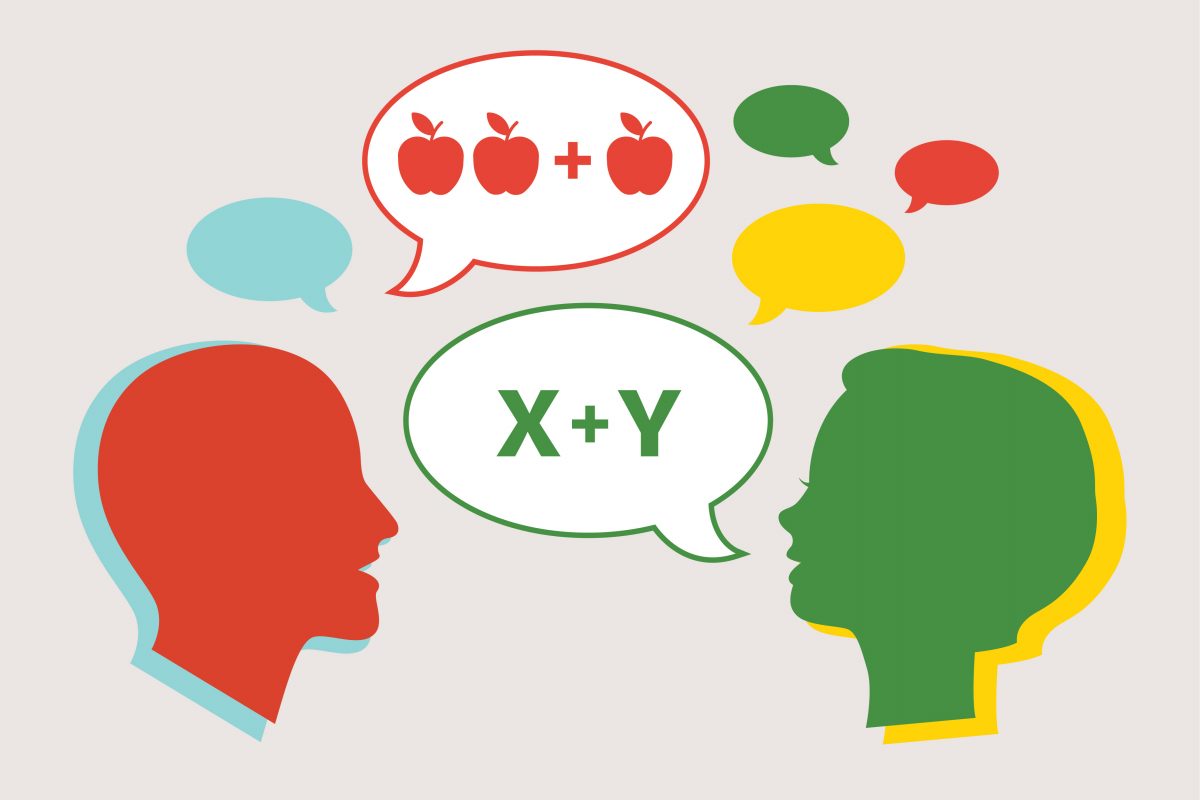
Imagine how difficult it would be to speak and write about complex mathematics in a language different from the one you speak at home. This is the challenge multilingual learners face at school. With the right strategies, teachers can help students understand mathematical language to clearly and concisely explain how they worked out a math equation. The following ideas from the Mathematical Discourse Series will help you teach the academic language required for students to demonstrate their understanding of mathematics.
Begin with Social Language
Often, students first become comfortable using social language, or informal language, when immersed in a new linguistic environment. This is everyday speech used with friends and family. For students to be successful in school, they need to develop academic language, as well.
“We start with the social language, with what they have, and then build on it,” PLACE math and science Professional Learning Specialist Christina Stefonek said.
A student, using social language, might say, “Those two things go together.”
“First, we need to recognize the mathematical reasoning that they are using. Then we teach the content vocabulary needed in order to say, ‘I add x plus y,”‘ Stefonek said. “We want them to be able to use academic terminology.”
Build Academic Language
Written academic language can be challenging for multilingual learners. During PLACE’s Mathematical Discourse Series, Stefonek demonstrates different math problems with participants. She focuses on the language and ways to help students write academically.
“The line [of a graph] goes up,” Stefonek said. “That’s often what I hear. This student has demonstrated a conceptual understanding. Then our job as math teachers is to provide the academic language so they could independently say, ‘The quantity is increasing by 10 units every 30 seconds.’”
It is also important to let students use the home and social language they are most comfortable with to help develop academic language in English.
Receive more tools and strategies when you join our community of math educators! Subscribe to the Math Professional Learning Resources newsletter here: https://events.place.education.wisc.edu/subscribe-to-math-program-updates.
